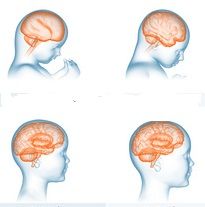Article
Brief Anesthesia Safe for Babies, Study Finds
Author(s):
Animal studies have shown that young animals subjected to anesthesia show signs of neurological impairment as they grow. What about human infants? An Australia study offers new evidence that less than an hour of general anesthesia seems not to harm children.

Does general anesthesia impede brain development in infants and toddlers?
Animal studies have shown that anesthesia in young animals affects their brain development. That has led to concerns that infants who have general anesthesia might show signs of IQ loss later, or other neurological impairments by the time they are toddlers. Such worries have even led to recommendations that parents delay such surgeries as long as possible.
A multinational study that followed children who had surgery with anestheia as infants found no such problems.
The children's brain development was tested at two and will be tested again at age five.
So far, at the two-year point, there is no evidence the general anesthesia impeded these toddlers' development, Andrew Davison, MD of Murdoch Childrens Research Institute in Melbourne, Australia and colleagues wrote in The Lancet.
The researchers looked a group of infants in 28 hospitals in Australia, Italy, the US, the UK, Canada, the Netherlands, and New Zealand. All had surgery to repair inguinal hernias. About half (294) in the final study group had general anesthesia and the others (238) had awake-regional anesthesia. The anesthesia lasted less than one hour.The awake group was larger to start but 75 infnats became “unsettled” during the surgery and needed more sedation. Those cases were excluded from the analysis.
At age two, the children’s mental abilities were tested with a test known as Bayley Scales of Infant and Toddler Development-III, which measures cognitive, language, motor, social-emotional, and adaptive behavior.
“For this secondary outcome we found no evidence that just less than 1 hour sevoflurane anesthesia in infancy increase the risk of adverse neurodevelopmental outcome at two year of age compared with awake-regional anesthesia,” the team concluded.
In an accompanying editorial, David Warner and Randall Flick of the Mayo Clinic in Rochester, MN said they found the researchers’ findings to be “robust” but the fact that the surgeries lasted only an hour or less was likely significant.
“Data from animal studies suggest that a dose-response relationship between anesthetic duration and injury exists,” they wrote. Longer surgeries might not be as benign, they suggested.
The results of the study of the relatively short surgeries were not surprising, but consistent with those of existing animal studies.
“The case is not yet closed in practice,” they wrote.
It is also not certain whether the tests used to assess possible consequences were sensitive and specific enough to find “differences in some specific cognitive domains.”
Nonetheless, the news that brief anesthesia is safe “is welcome news for parents and professionals,” the editorial noted.
The study will become a landmark in this research field, they said, adding that they eagerly await the results of the five-year testing and followup report.





